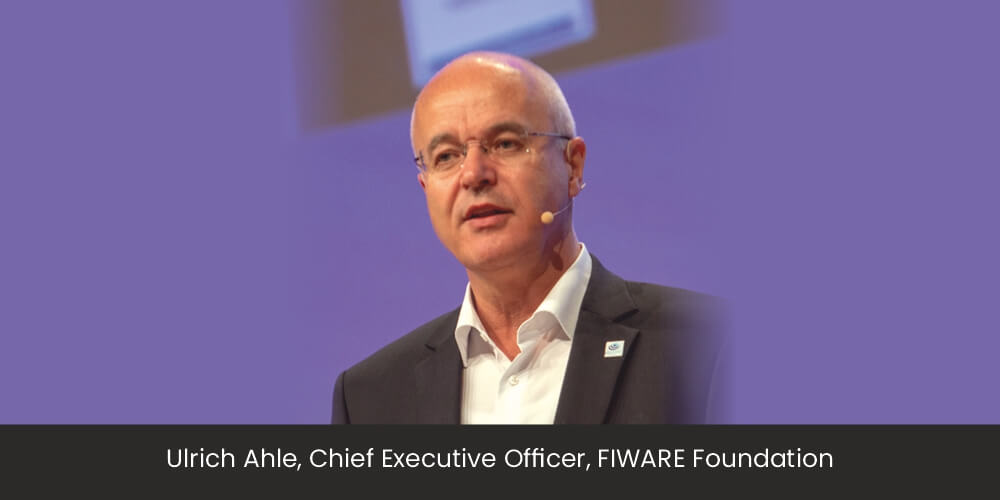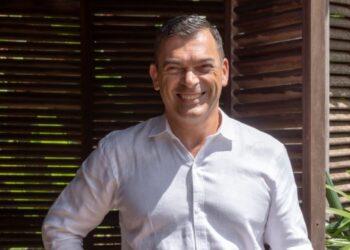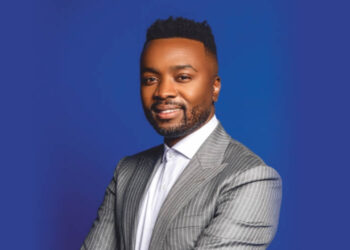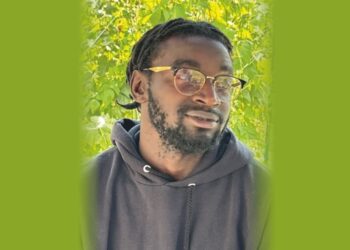Ulrich Ahle, the Chief Executive Officer of the FIWARE Foundation, began his career at a German computer pioneer called Nixdorf Computer, which Siemens acquired during the early 90s. He then continued his professional journey at Siemens and later at Atos, where he held the position of Vice President, overseeing consulting and IT services for customers in the manufacturing industry in Germany. Ulrich’s responsibilities included IT and process consulting, implementing IT systems like SAP, and providing support to clients during their digital transformation, particularly in the context of Industry 4.0.
Throughout most of his career, Ulrich worked closely with clients from the manufacturing industry. However, in mid-2016, a turning point came when the Atos Germany CEO contacted him with an intriguing opportunity. Ulrich was asked if he would be interested in applying for the position of CEO at the FIWARE Foundation. At that time, Ulrich had not heard of FIWARE, but after conducting swift research on its approach and potential, he made the decision to accept the offer on the same day.
Following this decision, Ulrich and the team founded the FIWARE Foundation, with its headquarters located in Berlin, by the end of 2016.
Below are highlights of the interview:
What motivated you to become a CEO, and how did you progress to your current position at FIWARE Foundation?
From the very first moment I was fascinated about the potential of FIWARE to enable the data economy. The basic technology and the first ecosystem were already developed beginning in 2011 within a Public Private Partnership of the European Commission with a lot of partners. After an investment of more than 500 million Euro during these first years the companies Atos, Engineering Informatica, Orange and Telefonica took the lead in creating the FIWARE Foundation. Based on this strong Foundation it was an easy decision for me to leave a large corporate and to begin with a start-up organization. In the meantime, FIWARE became a large and global ecosystem. Starting with the four founding members we were able to announce SKG Tecnologica from Columbia as our member no 600 during the FIWARE Global Summit. Members from all over the world are now forming the FIWARE ecosystem, be it universities, research organizations, start-ups, small and medium sized businesses or large global corporates like NEC, Deloitte, Red Hat or AWS as well as several end users like the cities of Vienna or Al Madinah.
Tell us about FIWARE Foundation.
We started with 5 people in the core team FIWARE Foundation. The core team is still small with now 40 people. But the open-source developers’ ecosystem has globally grown to more the 8.000 developers who are developing and maintaining the base technology of the Foundation or who are using it to create digital platforms and solutions.
The technology offering of the FIWARE Foundation are four-fold:
- Open-source software building blocks
- Standard interfaces (APIs)
- Smart Data Model
- Reference architectures for the five application domains in Smart City, Smart Industry, Smart Energy, Smart AgriFood and Smart Water
Within the domain of Smart City FIWARE in the meantime is the globally leading open-source technology with far more than 350 cities around the world driving their digitalization based on FIWARE technology.
How would you describe your leadership style? What are the key principles or values that guide your leadership approach?
My leadership style can be described as a participate style listening to my employees and also to the members of the FIWARE Foundation and involve them in the decision-making process. I’m inclusive, utilize good communication skills, and I’m able to share power/responsibility.at the same time providing vision and targets. With this I’m encouraging collaboration through accountability which leads to a collective effort of the team to identify problems and develop solutions. This way of leadership helps to build trust with employees as well as with the members of the open-source ecosystem.
What strategies do you employ to ensure effective communication and collaboration within your organization?
An open and trustful communication based on a clear vision, mission and strategy is important when leading distributed teams. Communication tools and social media are helping a lot nowadays but are not able to replace direct communication in all hands meetings which are required regularly. This is not only true for the employees of the FIWARE Foundation but also for the whole FIWARE ecosystems. There we are having at least once a year a physical FIWARE Global Summit in addition to all the newsletters, posts and web meetings.
How do you motivate and inspire your team members to achieve their best performance?
Also this is based on a clear vision, mission and overall strategy to set clear targets where to go. Trusting in people, providing flexibility at work how to achieve the target but also flexibility when and where to work helps to motivate the teams. E.g., we are allowing our colleagues to work from where the prefer: in the office, from home or at changing international destination (workation).
What is your vision for FIWARE Foundation’s future? How do you see the company evolving and adapting to industry changes?
Our future lives will gravitate more and more toward data. The vision of the FIWARE is to make this data accessible and to turn data into information and smart solutions improving the quality of life and reducing the cost of operations in cities, farms, and factories. We are providing the interoperable building blocks for the future data economy, just as GSM is enabling mobile communication around the world.
What are the major challenges you face as a CEO in the in the sector? How do you overcome these challenges?
We are clearly promoting open-source technologies and a high grade of interoperability as well as replicability of solutions. This is not in favor of the strategy of every software and IT service vendor on this planet, as several are promoting proprietary solutions creating a vendor lock in effect. Convincing end users on the benefits of an open approach (not only open source but also open standards) and bundling their market power is the way to shape this endeavor.
As a CEO, how do you maintain a healthy work-life balance? What practices or activities do you engage in outside of work to recharge and rejuvenate?
This is a real challenge, especially when you love what you do. Sufficient periods of vacation are important for me. Hobbies like being a local politician help to stay on the ground. The family provides a stable environment, and investing in relationships with friends helps to find the right balance.
What advice would you give to aspiring leaders who are looking to make a significant impact in their respective industries?
Creating impact requires a clear vision of what one would like to achieve and a clear strategy on how to achieve it. And it cannot be done alone. That’s why leaders are required to select the right people in their teams and be able to establish and maintain partnerships with organizations sharing the same vision, helping to achieve the targets. For FIWARE, the Data Spaces Business Alliance (DSBA) is such a partnership.
Website: https://www.fiware.org/





